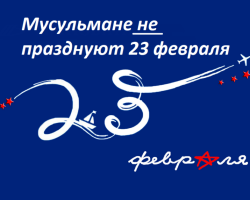The article introduces the reader to 7 mysteries of the Orthodox faith. Every sacrament, its meaning and purpose are described.
Content
- 7 Sacraments of the Orthodox Church
- The sacrament of baptism. The meaning of the rite of baptism of infants
- The sacrament of anointing
- The sacrament of the Holy Confession. Rite of repentance
- Communion or Evrostia. The meaning of the ceremony of the participle
- The sacrament of the wedding. The rules of the wedding ceremony
- Priesthood
- The Sacrament of Council or Eleperations
- Video: Azi Vera: 7 Sacraments in Orthodoxy
Christian sacraments are the most important component of the life of any believing Orthodox person. According to the canons of the Orthodox Church, the sacraments are established by Jesus Christ. They are designed to change the inner life of a person, to influence his soul.
According to the teachings of the Christian Church, during the sacrament, the grace of God is condensed by a person. The sacraments are sometimes called rituals. But, this is not entirely true. The rites were created by church figures, and the sacraments are actions that are pleasing to God himself.
7 Sacraments of the Orthodox Church
According to the rules of the church, any of the sacraments must have two components in order to be considered valid. The first is the science of the sacrament with a canonical priest, according to all the rules of the rite. The second is the inner mood of the believer himself, the purity of his thoughts and sincerely the desire to accept the sacrament. There are 7 types of sacraments in the Orthodox Church:
- Baptism
- Association
- Repentance, or holy confession
- Participle
- Wedding
- Priesthood
- Council, or Eleperation
The sacrament of baptism. The meaning of the rite of baptism of infants
- The sacrament of baptism is the first serious church rite in human life. Before this rite, a person has no right to take part in any other sacraments and rites
- According to the rules, the sacrament of baptism can be performed at any age. But, in modern practice, it is customary to baptize the child in infancy
- This, according to believers, protects him from all kinds of diseases. And, in case of misfortune, the child will go to heaven, and not in purgatory
- In the Orthodox Church, a three -fold immersion of the baby in water is practiced. This symbolizes the Father, Son and the Holy Spirit
- Cross children take part in the sacrament of baptism. Cross parents are people who undertake to introduce the child to the Orthodox faith to provide all kinds of help in education.
Cross cannot be:
- Monks
- Own parents of children
- Pair that is in marriage
- People of another religion
You can baptize a child at any age. But, the Orthodox Church, recommends baptizing children, starting from the 8th day of the clan. At the expense of this, disputes are constantly underway in the church environment.
Firstly, in early Christianity, the baptism of only conscious people who understood the essence of the sacrament and voluntarily agreed to baptism.
Secondly, the baptism of a very young child is fraught with psychological injuries, because the baby spends most of the time in a dream, a new situation, people and sudden immersion in water will scare him.

The sacrament of anointing
The anointing is performed immediately after the baptism of the baptism. It can only be done by a canonical Orthodox priest. The anointing symbolizes the condescension of the Holy Spirit on the believer. After this sacrament, a person fully joins the Orthodox Church. The process of sacrament involves the anointing of the holy world of the ears, eyes, nose, arms and legs of the believer. The sacrament of anointing, also, is committed when crowning to the kingdom, and for the Gentiles who accept Orthodoxy.

The sacrament of the Holy Confession. Rite of repentance
- A person, according to the dogmas of Christianity, can repent of, can only voluntarily. Repentance, or the sacrament of holy confession, usually precedes the sacrament of participle. Confession is carried out individually with the priest
- At first, he reads prayers, setting up the believer in the right way. Further, a person can express everything that he has accumulated in his soul, admit the priest in perfect sins
- After confession, the priest covers the head of the configured by the epitrchilia and makes the sign of the cross. Further, a person kisses the cross and the gospel. The sacrament of the holy confession is completely confidential. Confession is an important stage on the way to the spiritual life, to the calm of your soul

Communion or Evrostia. The meaning of the ceremony of the participle
- Communion or Evrostia is the main rite of Christian worship. The communion occurs when parishioners eat bread and wine from the hands of a priest, which symbolize the body and blood of Christ
- The sacrament of participle is necessary, as a reminder to believers of self -sacrifice, love for neighbors. In this sacrament, an important role is assigned to accompanying prayers, worships and chants. Communion is accompanied by a priest's sermon
- Regular communion, according to the Orthodox Church, can bring a person closer to God. After such a rite, diseases, troubles, quarrels in the family can retreat. A believer should take communion, at least once a month
The participle occurs only after the sacrament of repentance.

The sacrament of the wedding. The rules of the wedding ceremony
When marriage, believers, Christians are reunited by the sacrament of the wedding. People who agree to this rite should sincerely believe in the eternity of marriage on earth and in heaven. When performing the rite, the Holy Spirit condescends to steam, and with invisible power fastens their bonds. In order for the sacrament of the wedding to go correctly, it is necessary to follow the rules:
- People who have a marriage certificate are allowed for the wedding
- A woman and a man should sincerely love each other, a man is assigned to a man of a dominant role in the family
- Pair and their witnesses should be baptized Orthodox
- Throughout life you can only get married three times
- The wedding has an age limit. The man should be more than 18 years old, a woman - more than 16
- The wedding can be carried out throughout the year, except for the days of great posts and important holidays (Easter, Christmas, Trinity and others). The days of the week in which the wedding is held - Monday, Wednesday, Friday and Sunday
- The best time for wedding is the wedding anniversary or time after the birth of children.
You can get married in the church:
If both newlyweds are members of the Church, because if you are believers of different religions, the church simply does not marry you. So you must be baptized and wear a cross cross.
Before you get married, you have to sign at the registry office, because you will have to provide a certificate for the clergyman.
This is simply explained - if the registry office painted you, then there is confidence that any of you is not painted with someone else.
The registry office also does not paint the insane and does not recognize closely related connections, as well as the church.
You cannot get married in the church if:
- L yudyam, who once accepted the spiritual rank
- Nuns and monks
- Perpetrators of divorce of the previous marriage (for example, due to treason)
- People who have already been married more than 3 times
- We went outside the age limits. For men - this is 70 years old, and for women - 60
- There is no consent of parents. Children of Orthodox parents cannot marry without the consent of their parents

Priesthood
The priesthood is a sacrament in which a person receives a holy dignity, has the right to conduct Orthodox rites and sacraments. According to Orthodoxy, there are 3 degrees of priesthood:
- Deacon. This dignity allows the clergyman to help a more experienced priest in conducting the sacraments
- Presbyter (priest). The minister of this dignity can make sacraments, but only on behalf of the bishop
- Bishop (bishop). The highest dignity in Orthodoxy. Only the bishop can conduct the sacrament of the priesthood and devote others to commit the sacraments
The sacrament of the priesthood is preceded by a preaching, confessing the hosts and a sacred oath. Only after these actions, the bishop says if a person is worthy to get a san.

The Sacrament of Council or Eleperations
Council is the oldest sacrament of the Christian Church. Its main mission is the healing of bodily and showers. Council acts on the principle of repentance, but frees a person even from the sins that he could forget about. Council is carried out with the help of holy oil. That is why there is a threefold name for this rite - oiling. It is usually performed by several priests.
Council can be carried out at any age, starting from seven years. According to the rules, for seriously ill believers, the rite is allowed at home. Such a sacrament is performed no more than once a year. It is carried out over sick people who want to be healed, and, also, over the household. Council can be carried out in the church.

All seven sacraments carry a sacred meaning that is available only to truly believers. The sacrament should not be done if this is not an act of goodwill, or, if there is no understanding in its purpose.








Parable for repentance
Vladimir Shebzukhov
Christian parable
according to Evgeny Sanin (monk Barnabas)
Tired of falling in the way
Having said the last “I'm sorry!”
Yes, he will hear again - have you fallen?
So get up and ... go!
A man fell into a deep abyss.
"Save me, someone!" - He said.
Not just utterly - shouted in full voice,
In fear to stay in this pit forever.
And how not to hear that voice of poor fellow.
Friends rushed and tried hard workers
Serve his hand, holding on to each other.
Yes, they themselves almost did not fall, poor people.
Mercy came, like a vision.
An, everyone is not up to a miracle, because the thought of saving.
But the staircase that has already gone down,
It was short, the excitement increased!
The glory of the sufferer-hero also rushed.
I grabbed a rope with me to the call,
What, too, like a staircase, was brief.
Rushed to the rescue, and good deeds,
And the money is large, and so as not to disappear
The unfortunate in the pit, his power came!
They, just like everyone, were waiting for them ...
Hugged these saviors, compassion.
It seemed the end, but repentance came.
And the miserable hand extended down.
With joy, he almost lost consciousness.
He appeared before everyone, a little scratch.
And most importantly, the road is waiting for his life.
The desire of the saviors, although it came true,
Question to repentance - "How did you succeed?"
The repentance answered them briefly.
The answer is that the rope and the staircase are with her,
But the thought is deep in that answer, however:
"I hasten to save the fallen people again!"
Family and faith